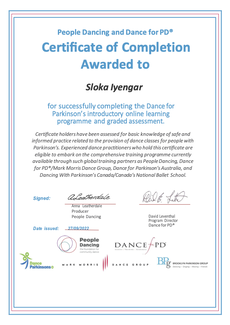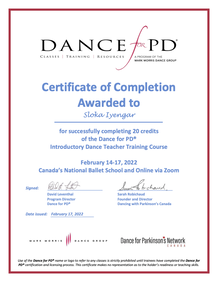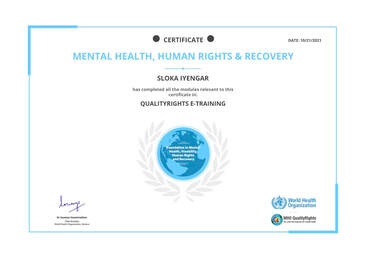Top image: With my students at the New York Academy of Sciences ‘Food Connection’ program
Exploring the Gita
February-May 2023
This introductory course is a "thematic overview of the philosophical basis of Bhakti as taught in the Bhagavad Gita. Over the course of 12 weeks, participants will read directly from the text and explore topics such as the soul, self-realization, karma and reincarnation, aspects of Divinity, relationships with God and others, and both our spiritual and material natures."
February-May 2023
This introductory course is a "thematic overview of the philosophical basis of Bhakti as taught in the Bhagavad Gita. Over the course of 12 weeks, participants will read directly from the text and explore topics such as the soul, self-realization, karma and reincarnation, aspects of Divinity, relationships with God and others, and both our spiritual and material natures."
Sanskrit language
February-March 2023
This course is offered by The Bhakti Center, and its aim is to familiarize students with basic principles of Sanskrit grammar, and help recite sacred verses (mantras) in different chandas (meters), an ancient practice that seeks to awaken our original spiritual nature through divine sound.
February-March 2023
This course is offered by The Bhakti Center, and its aim is to familiarize students with basic principles of Sanskrit grammar, and help recite sacred verses (mantras) in different chandas (meters), an ancient practice that seeks to awaken our original spiritual nature through divine sound.
Dance for PD continuing education
February 2023:
Exploring Attentional Focus in Dance – facilitating dance for all : In this session, we looked at managing one's attention and mind in dance.
February 2023:
Exploring Attentional Focus in Dance – facilitating dance for all : In this session, we looked at managing one's attention and mind in dance.
Dance for PD continuing education
January 2023:
Culturally Responsive Educational Approach in Teaching Dance: In this session, MMDG Education Staff "led a session to address what a culturally responsive educational approach is, provided examples of what it looks like when teaching dance, and give opportunities for faculty to create culturally responsive activities for their own classes. There was be a specific focus on supporting student-led activity creation across technical styles."
January 2023:
Culturally Responsive Educational Approach in Teaching Dance: In this session, MMDG Education Staff "led a session to address what a culturally responsive educational approach is, provided examples of what it looks like when teaching dance, and give opportunities for faculty to create culturally responsive activities for their own classes. There was be a specific focus on supporting student-led activity creation across technical styles."
Teaching Artistry for Social Impact as part of International Teaching Artist Collaborative (ITAC)
Spring 2023:
Teaching Artistry for Social Impact: The course "is a pioneering new resource for teaching artists/participatory artists/community artists everywhere who have an interest in social impact and are looking to enhance their approach to project design and delivery. We have drawn deeply from the wisdom within our network, international resources, and practice-based learning, to bring this resource to the field."
Spring 2023:
Teaching Artistry for Social Impact: The course "is a pioneering new resource for teaching artists/participatory artists/community artists everywhere who have an interest in social impact and are looking to enhance their approach to project design and delivery. We have drawn deeply from the wisdom within our network, international resources, and practice-based learning, to bring this resource to the field."
Dance for PD continuing education
December 2022:
I learned the the following three lok nritya (folk dance) exams and took the exam which consisted of theory and practical portions (I passed the exam with distinction):
December 2022:
I learned the the following three lok nritya (folk dance) exams and took the exam which consisted of theory and practical portions (I passed the exam with distinction):
- Prarambhik: Swagat geet, Desh bhakti geet, and Krishna bhajan
- Praveshika Pratham: Ghodo khundvo, Tippani, and Modern Garba
- Praveshika Purna: Dayaram kriti, Teen taali raas, Sugam sangeet, mix of raas and garba
Dance for PD continuing education
November 2022:
Harnessing the power of music and rhythm to cue, guide and inspire people with Parkinson's: In this session, we got "an exposure to a wide variety of music, a deeper understanding of just how crucial a role music can play in managing voice and movement in PD, ways to search for music, and an expansive list of musical selections to use in class."
November 2022:
Harnessing the power of music and rhythm to cue, guide and inspire people with Parkinson's: In this session, we got "an exposure to a wide variety of music, a deeper understanding of just how crucial a role music can play in managing voice and movement in PD, ways to search for music, and an expansive list of musical selections to use in class."
ComMotion - Community In Motion
November and December 2022:
ComMotion - Community In Motion course: In this two-part series, we were "given key insights into the relationship between health and engagement in the arts. We learned how to build our foundation in art and health education, and expand our knowledge of how artistic pursuits can enrich the quality of life for people of all abilities. With this comprehensive course, the goal is to become a more effective facilitator of art and movement activities geared towards a variety of populations."
November and December 2022:
ComMotion - Community In Motion course: In this two-part series, we were "given key insights into the relationship between health and engagement in the arts. We learned how to build our foundation in art and health education, and expand our knowledge of how artistic pursuits can enrich the quality of life for people of all abilities. With this comprehensive course, the goal is to become a more effective facilitator of art and movement activities geared towards a variety of populations."
Dance for PD continuing education
November 2022:
Age Appropriate Classroom Management: We talked about how to effectively manage classes, reading the room of the class, and the energy of the participants when facilitating dance sessions for older sessions.
November 2022:
Age Appropriate Classroom Management: We talked about how to effectively manage classes, reading the room of the class, and the energy of the participants when facilitating dance sessions for older sessions.
2022 Creative Aging Institute
November 2022:
National Assembly of State Art Agencies (NASAA’s) "Creative Aging Institute provides online professional development focused on trends and topics in creative aging for all 56 state and jurisdictional arts agencies. The 2022 Creative Aging Institute equips attendees with the inspiration and information they need to be successful creative aging leaders and champions in communities across the country."
November 2022:
National Assembly of State Art Agencies (NASAA’s) "Creative Aging Institute provides online professional development focused on trends and topics in creative aging for all 56 state and jurisdictional arts agencies. The 2022 Creative Aging Institute equips attendees with the inspiration and information they need to be successful creative aging leaders and champions in communities across the country."

Arts Educators’ Learning Lab
Fall 2022:
The Arts Educators' Learning Lab training organized by Arts in Education Roundtable is on celebrating the creation of culturally responsive practices in education spaces.
Fall 2022:
The Arts Educators' Learning Lab training organized by Arts in Education Roundtable is on celebrating the creation of culturally responsive practices in education spaces.
The Creative Center’s Training Institute for Artists and Administrators in Arts-In-Healthcare and Creative Aging!
October 2022:
This 3 week-long training organized by The Creative Center is "dedicated to understanding the relationship between creative expression and the challenges of illness and aging".
October 2022:
This 3 week-long training organized by The Creative Center is "dedicated to understanding the relationship between creative expression and the challenges of illness and aging".

People Dancing and Dance for PD
I completed a certificate course to gain a basic knowledge of safe and informed practice related to the provision of dance classes for people with Parkinson's.
I completed a certificate course to gain a basic knowledge of safe and informed practice related to the provision of dance classes for people with Parkinson's.

Dance for PD Introductory Dance Teacher Training Course
This course was offered by Canada’s National Ballet School and covered the anatomy of a class for individuals with Parkinson's Disease (PD), as well specifics to keep in mind for participant safety and wellbeing. In preparation for this training, I took several hours of self-study as well. Topics covered were:
This course was offered by Canada’s National Ballet School and covered the anatomy of a class for individuals with Parkinson's Disease (PD), as well specifics to keep in mind for participant safety and wellbeing. In preparation for this training, I took several hours of self-study as well. Topics covered were:
- Core concepts
- The medical condition
- Safe practice
- Teaching technique
- Class design and structure
- Exercise design
- Adaptations

WHO QualityRights (Foundation in Mental Health, Human Rights and Recovery)
The WHO QualityRights tool kit provides countries with practical information and tools for assessing and improving quality and human rights standards in mental health and social care facilities. The course I took includes:
The WHO QualityRights tool kit provides countries with practical information and tools for assessing and improving quality and human rights standards in mental health and social care facilities. The course I took includes:
Collecting and Using Data for Disease Control and Global Health Decision-Making, FutureLearn
This course goes over:
This course goes over:
- Strategies for global health program implementation: insights from polio eradication
- Polio eradication basics: pillars of eradication
- Understanding surveillance systems
- Examples from the Democratic Republic of the Congo (DRC) and Nigeria
- Using data for polio decision-making
- Challenges and strategies in data use
Introduction to Research Ethics: Working with People, FutureLearn
This course goes over:
This course goes over:
- Why research ethics matters
- Issues to remember when recruiting patients, especially those considered vulnerable populations
- Seeing how research could cause harm
- Issues unique to research using archived data and data on social media
Urbanisation and Health - Promoting Sustainable Solutions, Coursera
This course goes over:
This course goes over:
- Defining key determinants of urban health
- Recognizing general historical trends in urban development and planning
- Explaining causes and health effects of air pollution and noise
- Explaining drivers of demographic changes and interconnectedness with the composition of urban populations
- Identifying policy domains and urban interventions promoting age-friendly environments and healthy choices and lifestyles
- Seeing how blue and green infrastructure can promote urban health and wellbeing
- Understanding the Gehl Lens, a sequence of methods to assess and take people’s lived experiences in places into account in urban planning

2021 Summer Institute in Global Mental Health; Teachers College, Columbia University
The Summer Institute in Global Mental Health (GMH) is a 7-day training program in the Group Interpersonal Psychotherapy, the World Health Organization (WHO) Mental Health Gap (mhGap) Humanitarian Intervention Guide (HIG) and the role of Disability Policy & Advocacy in GMH. The training is consisted of didactic presentations, case studies, live demonstrations, and experiential exercises to gain knowledge on:
The Summer Institute in Global Mental Health (GMH) is a 7-day training program in the Group Interpersonal Psychotherapy, the World Health Organization (WHO) Mental Health Gap (mhGap) Humanitarian Intervention Guide (HIG) and the role of Disability Policy & Advocacy in GMH. The training is consisted of didactic presentations, case studies, live demonstrations, and experiential exercises to gain knowledge on:
- WHO Mental Health Gap Humanitarian Intervention Guide (mhGap-HIG)
- Group Interpersonal Therapy (Group IPT)
- Family Engagement Strategies
- Management of Suicide Risk
- Disability Policy & Advocacy in Global Mental Health training
Facilitating online learning: effective strategies for moderators
In this focus group with other Course Scientists at The Museum of Natural History, we discussed strategies to guide learner discussion and developed strategies to create a virtual learning community. This book by George Collison et al. on online learning was used as a base.
In this focus group with other Course Scientists at The Museum of Natural History, we discussed strategies to guide learner discussion and developed strategies to create a virtual learning community. This book by George Collison et al. on online learning was used as a base.
Introduction to Sanskrit 2
This course is offered by The Bhakti Center, and its aim is to familiarize students with basic principles of Sanskrit grammar, and help recite sacred verses (mantras) in different chandas (meters), an ancient practice that seeks to awaken our original spiritual nature through divine sound.
This course is offered by The Bhakti Center, and its aim is to familiarize students with basic principles of Sanskrit grammar, and help recite sacred verses (mantras) in different chandas (meters), an ancient practice that seeks to awaken our original spiritual nature through divine sound.
Foundation Course in Palliative Medicine
This course is offered by Trivandrum Institute of Palliative Sciences (TIPS) and ECHO International (Extension for Community Healthcare Outcomes) to provide palliative care education and expertise using an online platform.
This course is offered by Trivandrum Institute of Palliative Sciences (TIPS) and ECHO International (Extension for Community Healthcare Outcomes) to provide palliative care education and expertise using an online platform.
Project Management Professional
The PMP certification is an internationally recognized professional designation offered by the Project Management Institute. Topics covered include various aspects of project management such as initiation, planning, execution, monitoring and control, and project closing.
The PMP certification is an internationally recognized professional designation offered by the Project Management Institute. Topics covered include various aspects of project management such as initiation, planning, execution, monitoring and control, and project closing.
- Project integration management
- Project scope management
- Project schedule management
- Project cost management
- Project quality management
- Project resource management
- Project Communications Management
- Project risk management
- Project procurement management
- Project stakeholder management
Biostatistics in Public Health Specialization
| Sloka Iyengar Biostats certification | |
| File Size: | 330 kb |
| File Type: | |
This specialization builds statistical skills for biological sciences. This set of modules is meant to give participants the skills to master the tools and methods needed to analyze, interpret, and communicate biostatistical data.
1. Summary Statistics in Public Health
This course focused on the use of statistical measurement methods within the world of public health research. Topics included summary measures, visual displays, continuous data, sample size, the normal distribution, binary data, the element of time, and the Kaplan-Meier curve.
This course focused on the use of statistical measurement methods within the world of public health research. Topics included summary measures, visual displays, continuous data, sample size, the normal distribution, binary data, the element of time, and the Kaplan-Meier curve.
2. Hypothesis Testing in Public Health
This course built upon previous materials to discuss confidence intervals, the need for ample sizes of data, and ways to get around the need for ample sizes of data. The role of the Central limit theorem in setting a groundwork for computing a confidence interval for an unknown population parameter (mean, proportion, incidence rate) using the results from a single sample was discussed.
This course built upon previous materials to discuss confidence intervals, the need for ample sizes of data, and ways to get around the need for ample sizes of data. The role of the Central limit theorem in setting a groundwork for computing a confidence interval for an unknown population parameter (mean, proportion, incidence rate) using the results from a single sample was discussed.
3. Simple Regression Analysis in Public Health
This module focused on the use of simple regression methods to determine the relationship between an outcome of interest and a single predictor via a linear equation. A variety of methods were introduced, and the course gave practice interpreting data and performing calculations on real data from published studies. Topics included logistic regression, confidence intervals, p-values, Cox regression, confounding, adjustment, and effect modification.
This module focused on the use of simple regression methods to determine the relationship between an outcome of interest and a single predictor via a linear equation. A variety of methods were introduced, and the course gave practice interpreting data and performing calculations on real data from published studies. Topics included logistic regression, confidence intervals, p-values, Cox regression, confounding, adjustment, and effect modification.
4. Multiple Regression Analysis in Public Health
This module focused on the concepts of multiple regression for estimation, adjustment, and basic prediction, multiple linear regression, multiple logistic regression, basics of model estimates, effect modification, multiple Cox regression, and the “Linearity” assumption.
This module focused on the concepts of multiple regression for estimation, adjustment, and basic prediction, multiple linear regression, multiple logistic regression, basics of model estimates, effect modification, multiple Cox regression, and the “Linearity” assumption.
Epidemiology in Public Health Practice
This course uses study design and analyses to identify causes in an outbreak situation, guides interventions to improve population health, and evaluates programs and policies. Sections included:
This course uses study design and analyses to identify causes in an outbreak situation, guides interventions to improve population health, and evaluates programs and policies. Sections included:
- Measuring disease in epidemiology
- Study designs in epidemiology
- Validity and bias in epidemiology
The Business of Science (SciPhD)
The SciPhD workshop was designed to offer resources and hands-on training to identify and develop skills in communications, leadership, negotiations, team building, networking, and project management to graduate students and postdoctoral fellows. Sessions included:
The SciPhD workshop was designed to offer resources and hands-on training to identify and develop skills in communications, leadership, negotiations, team building, networking, and project management to graduate students and postdoctoral fellows. Sessions included:
- The Business of Science
- Successful Communications as a Scientist
- Six Leadership Styles
- Developing Your People
- Finance and Negotiating your Compensation Package
- Building Effective Teams
- Practical Project Management for Scientists
- Networking, Interviewing, and Applying What You’ve Learned

